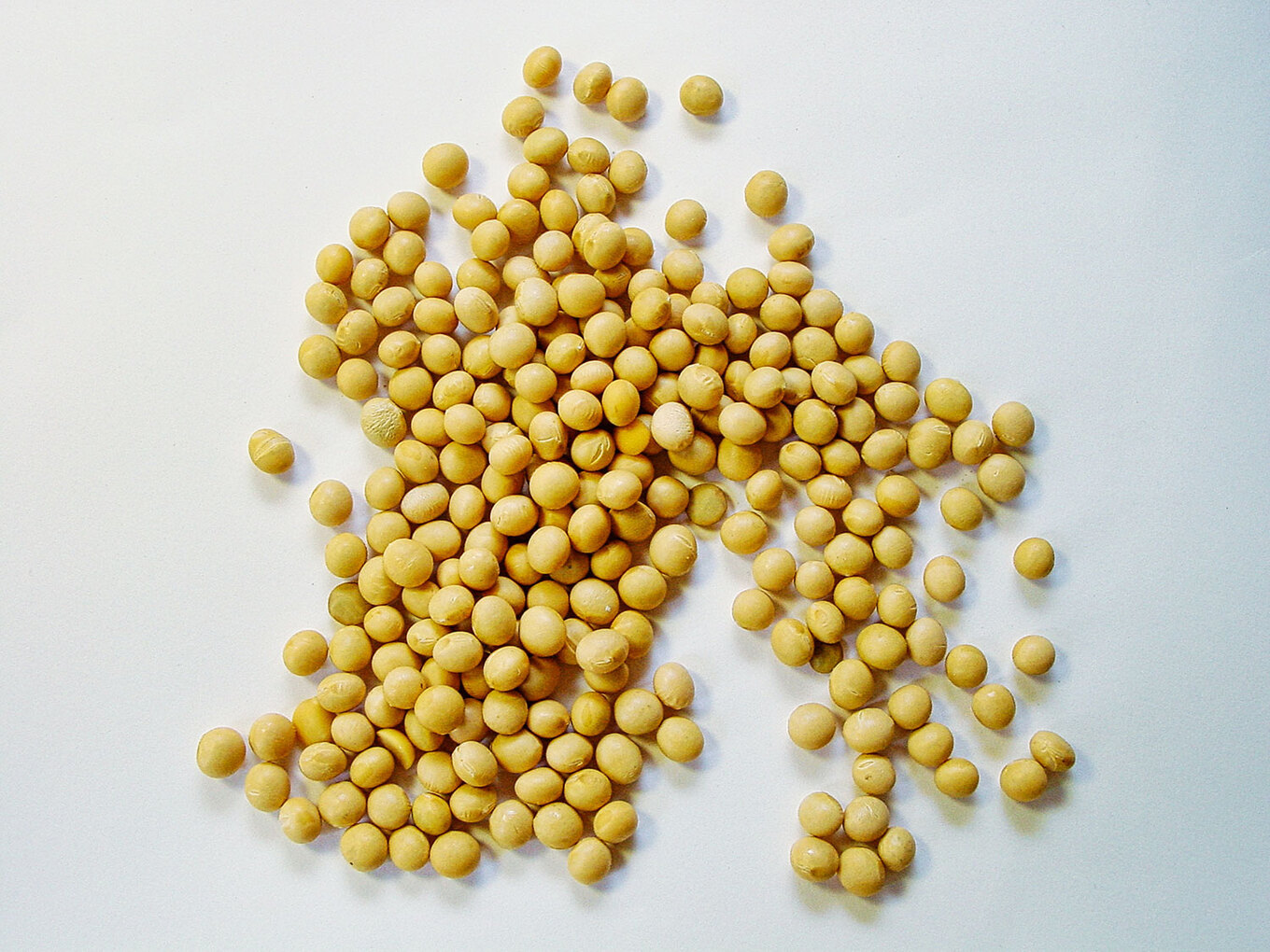Scientists have long known of soybeans’ cholesterol-lowering properties and lipid-regulating effects. In a new study, scientists have found that specific proteins in soybeans have the potential to reduce LDL cholesterol levels and lower the risk of metabolic diseases such as atherosclerosis—which leads to heart disease—and fatty liver disease.
The new study adds to previous research about the benefits of soy by investigating two specific soy proteins thought to be responsible for these outcomes—glycinin and B-conglycinin. The researchers found the latter to be particularly significant.
 Unsplash
Unsplash
“As we hypothesized, soybeans’ effects on cholesterol metabolism are not only associated with their protein concentrations and composition but also with the peptides embedded in them that are released during gastrointestinal digestion,” Elvira de Mejia, a professor of food science and human nutrition at the University of Illinois Urbana-Champaign and the corresponding author of the study, said in a statement.
Benefits of soy protein
For the study, the research team defatted and ground into flour 19 soybean varieties, each of which contained differing proportions of the two proteins. The proportion of glycinin in these varieties ranged from 22 percent to 60 percent while the B-conglycinin ratio ranged from 22 percent to 52 percent.
Using a simulation of the human digestive process validated by other studies, the team mixed the defatted soybean flours with various fluids and enzymes to mimic the oral, gastric, intestinal, and colonic phases of digestion. They identified 13 bioactive peptides produced during digestion, most of which came from glycinin and B-conglycinin, according to the study.
 Pexels
Pexels
In testing the digested materials’ capacity to inhibit the activity of HMGCR, a protein that controls the rate of cholesterol synthesis, the researchers found that their inhibitory properties were two to seven times less potent than simvastatin, a popular drug used to treat high LDL cholesterol and fat levels in the blood that was used as a control in the study.
After classifying the soybean varieties by their glycinin and B-conglycinin composition and their HMGCR inhibitory properties, the team selected five varieties for further analysis. “We started with cells that were already exposed to fatty acids to mimic fatty liver disease and tried to understand the role of the digested soy proteins,” de Mejia said.
“We measured several parameters associated with cholesterol and lipid metabolism and various other markers—proteins and enzymes—that positively or negatively affect lipid metabolism,” de Mejia added.
These markers included HMGCR and angiopoietin-like 3, a protein secreted primarily by the liver that is a critical modulator of lipid metabolism, de Mejia said.
ANGPTL3 inhibits the enzymes involved in the metabolism of triglycerides, LDL cholesterol and high-density lipoprotein cholesterol, which is sometimes called “good cholesterol” in contrast to LDL’s reputation as “bad cholesterol.” Both HMGCR and ANGPTL3 are overexpressed in fatty liver disease, according to the study.
Secretion of ANGPTL3 more than tripled after the liver cells were exposed to the fatty acids, de Mejia said. However, the team found that peptides from three of the digested soybean varieties reduced ANGPTL3 secretion by 41 percent to 81 percent in correlation with their glycinin and B-conglycinin ratios.
 Unsplash
Unsplash
Although the fatty acids reduced the liver cells’ absorption of LDL cholesterol by more than one-third, the soybean digests reversed this by inhibiting the expression of a protein. The digests increased the cells’ uptake of LDL by 25 percent to 92 percent, depending on the soybean variety and its glycinin and B-conglycinin proportions.
Greater concentrations of B-conglycinin in the digests correlated with larger reductions in oxidized LDL, esterified cholesterol, triglycerides and HMGCR levels in plasma, the team found.
“The digested soybeans’ peptides were able to reduce lipid accumulation by 50 percent to 70 percent, and that’s very important,” de Mejia said. “That was comparable to the statin, which reduced it by 60 percent. We also clearly saw different markers that were influenced by key enzymes that regulate hepatic lipogenesis—the development of a fatty liver.”
Soybeans reduce menopause symptoms
In addition to soy’s cholesterol-lowering properties, previous studies have found other benefits such as its ability to reduce menopause hot flashes. A study published in the journal Menopause by the North American Menopause Society found that a plant-based diet rich in whole soybeans reduces moderate-to-severe hot flashes by 84 percent.

And, notably, at the end of the study, nearly 60 percent of participants following a plant-based diet reported becoming totally free of moderate and severe hot flashes, while the group that did not have a diet change did not report a change in this variable. Many study participants also reported improvements in sexual symptoms, mood, and overall energy.
“This is a game changer for women aged 45 and over, most of whom we now know can get prompt relief from the most severe and troubling menopause symptoms without drugs,” Neal Barnard, MD, president of the Physicians Committee for Responsible Medicine (PCRM) and study lead researcher, said at the time.
For the latest vegan news, read:
JUMP TO ... Latest News | Recipes | Guides | Health | Subscribe









